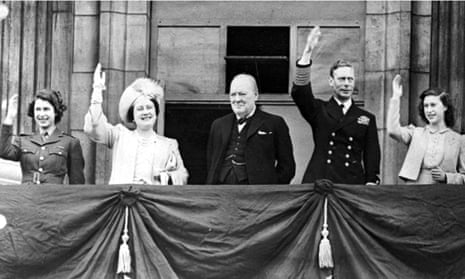“Hostilities will end officially at one minute after midnight,” Winston Churchill declared in his characteristic growl over the radio 70 years ago on VE day. “Long live the cause of freedom!” Crowds surged through the streets of London in celebration of the hard-won victory over nazism. Yet, although peace had returned after five years of war, it was a peace coloured by anxiety and marked by unresolved antagonisms. The war had left Europe so devastated that it was hard to imagine how it could rise again or find a path towards reconciliation. More than 36 million Europeans had died. As an American military psychologist with the American forces noted at the time, there was just as much hatred as there was rejoicing at the end of the fighting.
The overwhelming feeling among many of those who emerged from the wreckage was “a good German is a dead German”. As it grew and developed from those dark days, the movement for European unity transformed that harsh landscape. Much as it has become fashionable to deplore today’s state of affairs in Europe, it is important to remember the key reason the European project came about in the first place. It was born in the spirit of “never again”, after Europe had demonstrated its tremendous capacity for self-destruction.
The notion of a peaceful Europe, in which the pursuit of national advantage is tempered by a concern for the continent as a whole, has come under stress in recent years. There is conflict within Europe’s borders in Ukraine, and to the south in the Middle East and parts of Africa. They unavoidably spill over into what some have called Europe’s “Kantian world”, a protected, rule-based and prosperous space, at a time when Europe’s sense of itself is already less clear than it used to be. The continent has not yet come fully to terms with its growing demographic diversity, nor achieved consensus on how to deal humanely with the flow of immigrants from the disturbed regions around it. For all it has accomplished over the decades, today’s European project has clearly run out of steam, and is fractious and full of self-doubt. Europe seems not to know how to harness its power to deal with difficult new realities, yet that power is far from negligible. That statement does not relate just to the military capacity of its core states. Europe is still, despite all its travails, the largest economic entity in the world. And it retains the capacity to attract people and states who see in it hope for a better future for themselves.
What is lacking is the political will and self-confidence to forge a new vision and use Europe’s instruments of policy in a strategic way. Since the 2008 crisis, Europe has been almost solely focused on deficit targets, debt, interest rates and bailouts, in a messy effort to pull through. That has given populists a great opportunity to distil their poisonous views.
We honour the courage of those who fought to put an end to Europe’s abominations. It would be good to do so not just out of gratitude, but with the clear-sightedness that will be required from all, democratic politicians and citizens alike, if we are to formulate a new inspiration for Europe. Britain has a special responsibility here. The Commonwealth stood almost alone against Nazi Germany until the Russians and the US came into the war, and thereafter we made a significant contribution to the final victory.
But we were slow to see the logic of a European unity that fully included us, and we are still laggard in that respect, to the point of playing with the idea of withdrawal. That would be a disaster for us and for Europe, and no kind of tribute to a Winston Churchill who, in spite of his imperial inclinations, was one of the first to grasp the importance of European unity.
